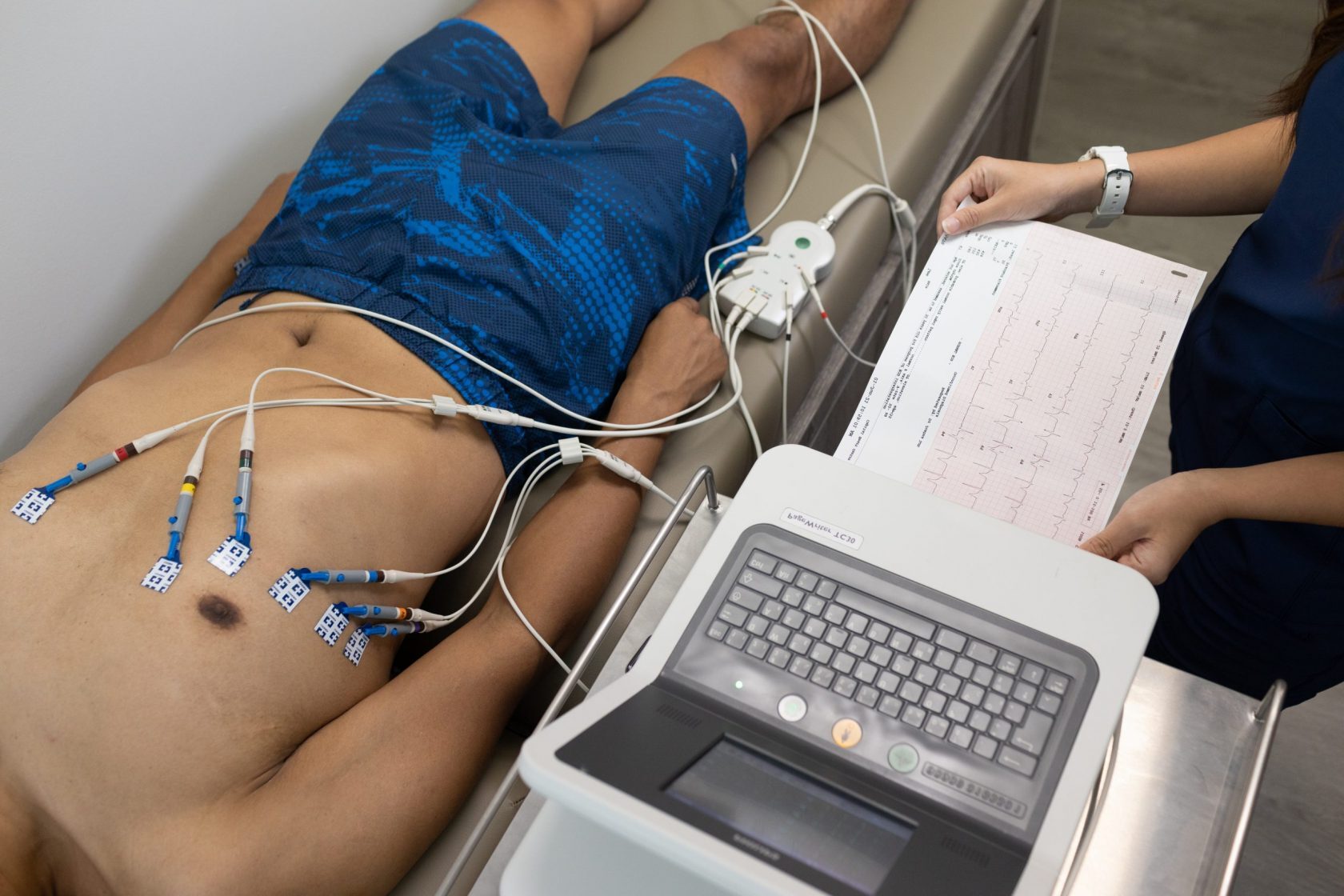Electrocardiograms (ECGs) are vital tools in diagnosing and monitoring heart conditions. This quiz will take you through various aspects of ECG interpretation, from basic concepts to more advanced topics. Sharpen your skills and see how much you know about this essential diagnostic tool. Good luck!
We recommend that you do not leave the page that you are taking this quiz in. Stay honest 🙂
ECG Quiz Questions Overview
1. What does the P wave in an ECG represent?
Atrial depolarization
Ventricular depolarization
Atrial repolarization
Ventricular repolarization
2. Which part of the ECG corresponds to ventricular depolarization?
P wave
QRS complex
T wave
U wave
3. What is the normal duration of the PR interval?
0.12 to 0.20 seconds
0.20 to 0.30 seconds
0.08 to 0.12 seconds
0.30 to 0.40 seconds
4. Which lead is considered the ‘ground’ lead in a standard 12-lead ECG?
Lead I
Lead II
Lead III
Right leg lead
5. What does the T wave in an ECG represent?
Atrial depolarization
Ventricular depolarization
Atrial repolarization
Ventricular repolarization
6. What is the significance of the ST segment in an ECG?
Indicates atrial depolarization
Indicates ventricular depolarization
Indicates the period between ventricular depolarization and repolarization
Indicates atrial repolarization
7. Which ECG lead is most commonly used to monitor heart rhythm in a hospital setting?
Lead I
Lead II
Lead III
Lead V1
8. What does a prolonged QT interval indicate?
Increased risk of atrial fibrillation
Increased risk of ventricular arrhythmias
Increased risk of myocardial infarction
Increased risk of heart block
9. Which electrolyte imbalance is most likely to cause peaked T waves on an ECG?
Hypercalcemia
Hypocalcemia
Hyperkalemia
Hypokalemia
10. What is the typical heart rate range for sinus bradycardia?
60-100 bpm
40-60 bpm
100-120 bpm
20-40 bpm
We recommend that you do not leave the page that you are taking this quiz in. Stay honest 🙂
Can Your Friends Do Better Than You in This Quiz?
Share this quiz with your friends and compare results.
Was this page helpful?
More Popular Health & Wellness Quizzes:
-
Bipolar or ADHD Quiz
-
Sepsis Quiz
-
Medical Terminology Quiz
-
Puberty Quiz
-
Body Regions Quiz
-
Sexual Harassment Quiz











